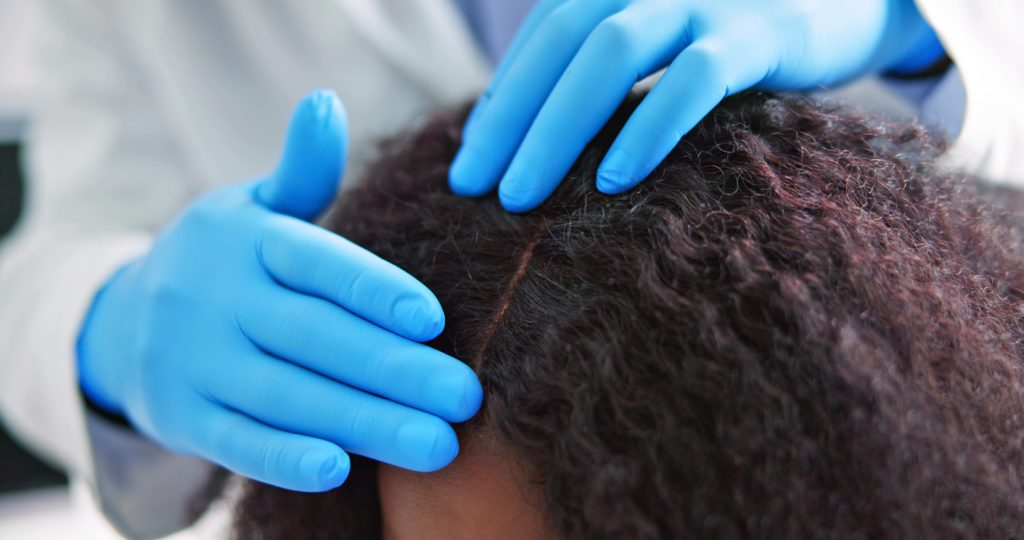The FDA has delayed a proposed ban on formaldehyde in hair relaxers until at least September 2024, despite established cancer risks associated with the chemical. Concurrently, the hair relaxer multidistrict litigation (MDL) is advancing, with ongoing discovery efforts as defendants negotiate terms for document production. Notably, the number of cases within the MDL has seen a slight increase, highlighted by new filings, including a significant lawsuit from a Michigan woman claiming her cancer diagnosis resulted from using hair relaxer products. Insurers and defendants are also engaged in complex legal strategies to avoid coverage responsibilities. Overall, the MDL is experiencing steady growth, marked by ongoing discovery disputes.
Recent Developments in the Hair Straightener Lawsuit (October 2024)
New Wrongful Death Lawsuit Filed: A Georgia woman has initiated a wrongful death lawsuit within the hair relaxer MDL, alleging that her mother’s uterine cancer was caused by the prolonged use of chemical hair relaxer products. The suit claims that manufacturers failed to properly test and label their products, posing severe health risks. The plaintiff is seeking damages for wrongful death, survival action, and loss of consortium, along with punitive damages.
Judge Limits Common Benefit Fees: A federal judge in Chicago has ruled on common benefit fees in the hair relaxer litigation. Judge Mary Rowland denied a motion to reconsider a previous order that limited these fees. The judge maintained an 11% common benefit fee for settlements reached within the MDL but rejected extending these fees to outside settlements.
Class Action for Reimbursement Allowed to Proceed: A federal judge has approved a class action lawsuit against hair relaxer manufacturers, including L’Oreal and Revlon, allowing consumers to seek reimbursement for products purchased without knowledge of potential cancer risks. This decision is a significant step for consumers to claim compensation for economic damages in addition to personal injury claims.
MDL Case Count Decrease: After a surge in cases in August, the hair relaxer MDL saw a decline in September, with pending cases decreasing by 98, totaling 8,393.
Motion Filed to Compel Document Production: Plaintiffs have filed a motion compelling Defendant Strength of Nature to produce documents related to a “uterine study,” claiming these records are crucial to their case and not protected by the work product doctrine.
New Lawsuit Filed: A Virginia woman has filed a lawsuit in the MDL, alleging that her use of hair relaxer products resulted in a diagnosis of endometrial cancer.
Court Ruling on Economic Loss Claims: The MDL judge largely denied a defendants’ motion to dismiss economic loss claims, allowing plaintiffs to assert that they incurred economic injuries and an increased cancer risk from using hair relaxer products.
Ongoing Discovery Disputes with L’Oréal: Plaintiffs are pushing L’Oréal USA to comply with court orders to produce documents from its parent company, L’Oréal S.A., arguing that L’Oréal USA is attempting to avoid its responsibilities.
New Hair Relaxer Lawsuit Filed: A Tennessee woman has filed against L’Oréal and others, claiming their hair relaxer products led to her endometrial cancer and uterine fibroids.
Fee Allocation Proposal: The Plaintiffs’ Leadership Committee proposed a “common benefit fee holdback” to compensate attorneys for work benefiting all plaintiffs in the MDL, including an 8% holdback on attorneys’ fees.
JPMS Motion to Dismiss Challenged: Plaintiffs have opposed John Paul Mitchell Systems’ motion to dismiss, arguing that all allegations are relevant to the case.
Significant Increase in MDL Cases: Over 200 new cases were added to the hair relaxer MDL in August, marking the highest monthly volume in several months.
Litigation Update: A joint status report highlights several pending motions and ongoing discovery issues with various defendants, including Revlon.
Compliance Issues with Revlon: Plaintiffs expressed frustration with Revlon’s compliance with discovery requirements and filed a motion to compel document production.
Exclusion of Walmart and CVS from Master Complaint: The Plaintiffs Leadership Committee informed the court that Walmart and CVS will not be included as defendants in the Master Complaint due to limited involvement.
Motion to Dismiss Non-Cancer Lawsuits: Plaintiffs requested the dismissal of all non-ovarian, uterine, or endometrial cancer lawsuits in the MDL, aiming to preserve the possibility of refiling if necessary.
Understanding the Risks Behind Hair Relaxers
While you may have perfected your hair care routine, those products promising smooth, sleek strands could harbor serious risks. Chemical hair relaxers, often seen as a solution for managing curls, may contain endocrine-disrupting chemicals (EDCs) like parabens and formaldehyde. These substances can interfere with hormone systems and pose significant health threats, including various cancers.
Chemical Hair Relaxers
Hair relaxers work by breaking down disulfide bonds in your hair. However, with repeated applications, the risk of exposure to EDCs increases, potentially heightening cancer risks.
Keratin Treatments
Popular for controlling frizz, many keratin treatments also contain formaldehyde derivatives, releasing harmful gases when heat is applied. In poorly ventilated salons, this can lead to serious health hazards.
Scientific Studies and Health Risks
Recent studies from the National Institutes of Health highlight alarming findings: women who frequently use hair relaxers are at a significantly higher risk for developing uterine cancer. The FDA is currently considering regulations to ban formaldehyde in hair products to protect consumers from health risks associated with these chemicals.
Disproportionate Impact on Black Women
The risks associated with these products disproportionately affect Black women, a demographic often targeted by marketing for hair straightening products. Ongoing research continues to explore this troubling trend.
Seeking Justice and Compensation
If you or someone you know has experienced health issues after using chemical hair treatments, there may be a path to seek compensation. Your health and safety are paramount, and pursuing legal action can be a step towards justice.

Mass Torts vs. Class Actions: A Quick Overview
Mass tort and class action lawsuits represent two distinct legal approaches for handling claims involving multiple individuals harmed by the same entity.
Mass Torts: These cases are suited for individuals whose situations differ, allowing each person to file their own lawsuit. This method ensures that each individual maintains control over their case.
Class Actions: This approach unites individuals under a single legal action, with one or a few representatives making decisions for the entire group. While more efficient, it limits individual control over the case outcome.
Which Path is Right for You?
- Control: Mass torts offer more personal control; class actions have limited control.
- Compensation: Individualized in mass torts; typically uniform in class actions.
- Applicability: Mass torts fit varied individual damages; class actions suit uniform damages.
- Efficiency: Class actions can expedite the process by consolidating claims.
Navigating these legal pathways can be complex, so it’s essential to consider your unique situation when determining the best course of action.

















